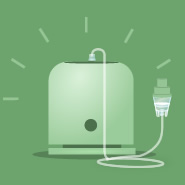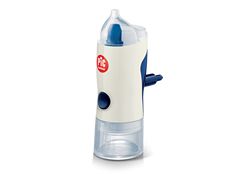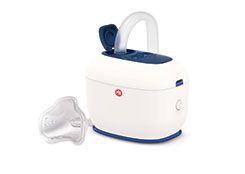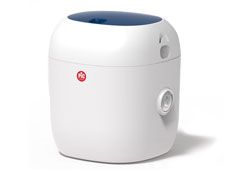
The airways: a paradise for viruses
Interesting fact: there are over 200 cold viruses that are constantly mutating. They're like an army of pathogens that take advantage of weakened immune systems. They cause problems and can be found in lots of different places; it's pretty obvious that the airways are still the favourite place for cold viruses to establish themselves.
Colds are caused by viruses that attack the nose and throat, but they can reach as far as the lungs. Cold viruses are passed from person to person by sneezing, coughing and hands that are covered in mucous, through contact with sick people or contaminated objects. It's exactly because of the range of these viruses that we talk about colds in the plural.
A cold? No, colds plural
Cold viruses can survive on toys, phones, door handles, towels, tables or other objects for up to 3 hours: they're super-resistant. The virus is then transmitted from these objects to the nose by the hands. Once in the nose, the viruses start to multiply and spread downwards, to the throat, the windpipe and the lungs, causing a sore throat and coughing. .
There are more than 200 varieties of cold
Colds are caused by more than 200 viruses. The rhinovirusis the most common and contagious "culprit". Sometimes a cold caused by a virus can trigger a bacterial infection, which can make the illness last more than 2 weeks. When the cold is at its peak, there can literally be up to 500-1000 viral particles per milliliter in the nasal secretions. When the virus starts multiplying in the lining of the nose, it induces the infected cells to release histamines, bradykinin and interleukins which are substances responsible for that most common affliction, the "runny nose".
Losing your voice because of a cold
A cold affects the larynx and the windpipe in the middle respiratory system. In such cases, cold viruses can even reach the vocal cords and drastically affect the pitch of the voice. A condition specific to laryngitis is croup (also called spastic laryngitis), a name from the English for "to cry hoarsely", which almost exclusively happens in children under the age of 4 at night-time, accompanied by swelling of the inside of the throat. What's the result? A "barking" cough, rasping and severe hoarseness.
The cold that deteriorates into asthma
When we talk about a cold of the lower airways, we mean a chronic condition like asthma or bronchitis. In many cases it's not a virus, but is instead a bacterial infection that can have serious consequences, even fatal, in particular situations like pneumonia.









